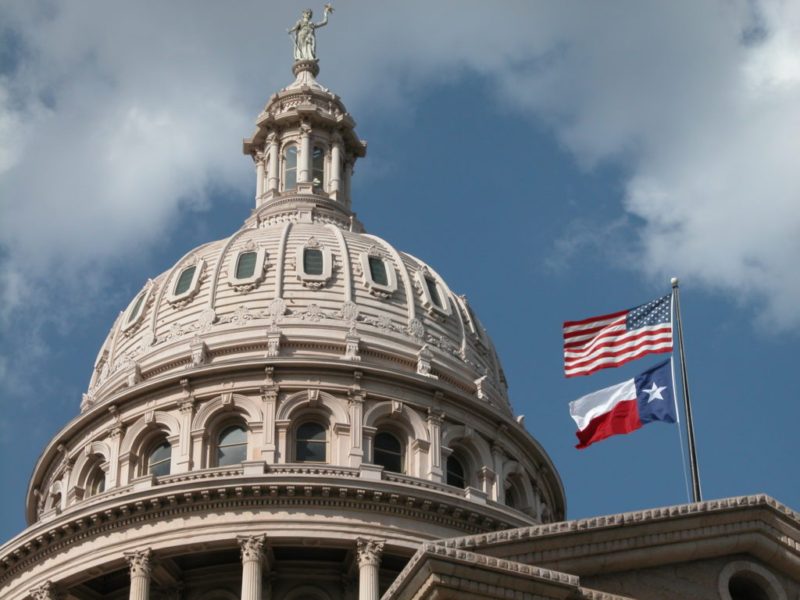The Texas House of Representatives Appropriations Subcommittee on Article III met today to discuss funding for TRS-Care and the implementation of last session’s changes to the retiree health care program. The committee invited testimony from both the Teacher Retirement System of Texas (TRS), as well as stakeholder groups, including the Texas Retired Teachers Association (TRTA).
The committee is chaired by Rep. Trent Ashby (R – Lufkin). Ashby has worked diligently with TRS and TRTA to provide additional state funding for TRS-Care in previous sessions. Last session, Ashby helped champion HB 3976, which provided $484 million to help fill the $1 billion TRS-Care budget shortfall. Ashby also helped to pass a special session bill that provided $212 toward TRS-Care.
Next session, TRS-Care is projected to have a $410 million shortfall. While the shortfall is significantly smaller than last year’s gap, TRS-Care still faces significant hurdles. The reason TRS-Care continues to face shortfalls each year is due to the program’s funding formula. TRS-Care is funded on the basis of active educator payroll. However, active educator payroll isn’t keeping up with the rising costs of the health care industry. These increasing costs have resulted in numerous budget shortfalls over the past several legislative sessions.
Retirees felt a huge hit to the benefits provided by TRS-Care when the state didn’t fully fund last year’s shortfall.
TRS Executive Director, Brian Guthrie, discussed how the efforts to fill in the TRS-Care shortfalls are like “fighting a losing battle.” He pointed out that while TRS was able to save close to $300 million for TRS-Care through provider-driven contract negotiations, the TRS Board of Trustees is still considering whether to raise premiums for non-Medicare participants by $50 per month and will discuss the matter on September 20 and 21 during their quarterly meeting. The change was originally laid out in the plan by the Legislature in 2017 to take a stair-step approach to raising retiree premiums.
However, since that time, TRS has received letters from Lt. Gov. Dan Patrick and Sen. Joan Huffman (R – Houston) not to raise the premiums.
“Our board is very sensitive to perceived legislative intent,” Guthrie said.
Rep. Donna Howard (D – Austin) feels that the current pay-as-you-go system that the Legislature has used to fund TRS-Care is “detrimental to retirees.”
“You deal with the cards that you’re dealt,” said Howard to Guthrie. “We need to find some sustainable revenue streams.”
Guthrie detailed a long-term plan that the Legislature had as an option to pre-fund TRS-Care. This plan would involve the Legislature putting in enough money over a 10-year span to not only fund the shortfall, but also to add additional money that would be put into a “corpus.” Eventually, the corpus would have enough money in it to become its own investment entity, similar to the pension fund. However, to reach enough money to have the corpus cover the costs of TRS-Care would require $12 billion.
The changes to TRS-Care last year resulted in more than 36,000 participants leaving the program.
TRTA Executive Director, Tim Lee, also addressed the committee today. Lee detailed the many issues that retirees are suffering from as a result of the changes to TRS-Care, and he said that many people will continue to question whether they want to stay in the health care program. Open enrollment for health care plans in 2019 will begin October 15, 2018, and Lee expects many retirees to be “bombarded” with proposals from insurance agents to leave TRS-Care. Retirees who do choose to leave TRS-Care aren’t allowed back in if they are over the age of 65. Only retirees turning 65 have an opportunity to rejoin when they become age-eligible for the TRS-Care Medicare Advantage plan.
TRTA has advocated for a “golden ticket” program that would offer retirees a one-time chance to rejoin TRS-Care regardless of their age.
“Medical costs aren’t going down,” Lee said. “We need an ongoing discussion about how to better manage this health care program.”
TRS-Care premiums were held steady for years because retirees weren’t receiving COLAs, which was the Legislature’s intent. “Going forward,” said Lee, “it’s important to recognize the need for more revenue.”
Lee said that the current funding rate for TRS-Care is too low, and that so long as this amount remains the same, TRS-Care will continue to have shortfalls.
TRTA members believe affordable, accessible health care for TRS retirees was once considered a retirement security benefit but is now seen by many as a broken promise. TRS retirees paid into TRS-Care throughout their careers, but the expectation of security in retirement is now threatened due to a fixed income that doesn’t keep up with the cost of living or even the cost of health care.
TRTA is ready and willing to work with all legislators to restore this promise and give retirees the security they need and deserve. TRTA acknowledges and appreciates the work of chairman Ashby and the members of the Appropriations Committee. Their work will be vital to determining the future of TRS-Care.




